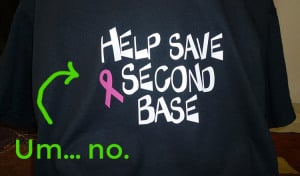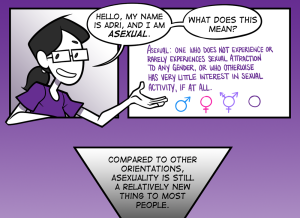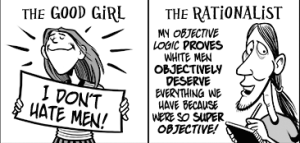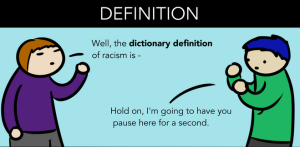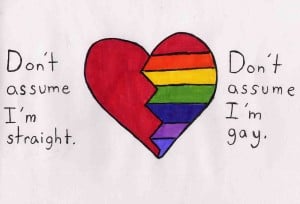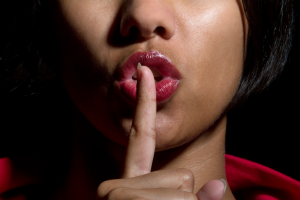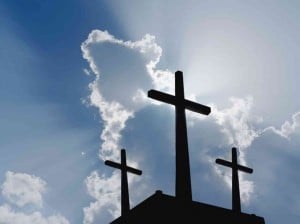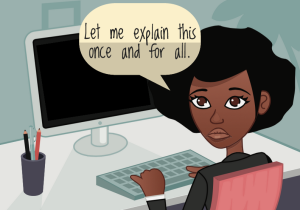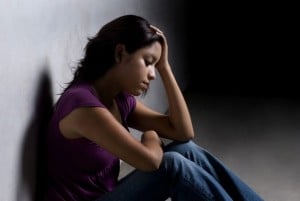Originally published on the Huffington Post and republished here with permission.

A group of people in a circle, raising an arm to touch hands in the center.
I often think about what it means to be a truly good ally. As we seek justice and advocate for those groups that find themselves on the receiving end of oppressive treatment, we juggle with multiple trade-offs and strive for an elusive equilibrium.
We need to speak up, but not over the voices we try to support. We should find the audience that is willing to listen, but not end up preaching to the choir. We ought to be driven by the moral imperative to do the right thing, but also be careful not to develop a savior complex. And most importantly, we have to ignore strong incentives to uphold the status quo and be ready to rock the boat for the greater common good.
This is not to say that the life of an ally is fraught with hardship. It certainly isn’t nearly as bad as going through the trials and tribulations of racism, misogyny, homophobia, transphobia, and other forms of oppression firsthand.
This is merely to show that in order to achieve our goal, we need to put in some effort into figuring out what strategies will allow us to leverage our privileged position in the most effective manner. An obvious statement, to be sure, but the one that recently prompted me to specifically consider my international background in the context of allyship.
I am a white Russian man who grew up in what I now call a cultural bubble. In short, I was exposed to the influence of all things American during my formative years that went well beyond the usual reach of Americanization. Among other things, this explains how I came to be bilingual and why I am so eager to play a part in perfecting the Union despite being a foreigner.
The news of the recent police shootings of unarmed black men, as well as the attacks on law enforcement officers that followed, left me with a heavy heart and the determination to take action. But what do I do? Where do I start?
My natural impulse is to express my feelings in writing. Not so long ago I came across the quote by Teju Cole that stuck with me: “Writing as writing. Writing as rioting. Writing as righting. On the best days, all three.” It sounds just right. But as I sat at my desk I felt desperate, frustrated and useless.
The pen may be mightier than the sword and it certainly has the power to comfort, heal, and inspire the sense of community – but as a society, we can’t simply write our way out of systemic inequality and injustice without offering constructive solutions. And at the time I didn’t seem to have any. Living in a country that’s as culturally different as it is geographically distant from the United States of America, what could I really do?
I spent the last several days thinking about this and came up with even broader questions. What is the role of international allies in the struggle against the oppression of black people in the United States? How are we different from allies at home, and could we possibly use our position to the advantage of the Black Lives Matter movement? Is there a way to stay away from the misconceptions about its purpose and its message?
I don’t pretend to have all the answers but I would like to share a few ideas.
What We Can’t Do
First off, we have to acknowledge a few major impediments to our participation in the movement.
1. Lack of Lived Experience
While this applies to allies in general, our status as outsiders of the outsiders further distorts our perception of the problem. As much as we may know in theory, we don’t have the intimate understanding of what makes the American society tick. However, we can partly make up for this deficiency by listening to those with direct personal experience and being especially careful when it comes to choosing our sources of information and forming opinions.
2. No Citizenship Benefits
US citizenship affords many opportunities to effect positive change. Allies at home have the right to vote in federal and local elections, run for public office, hold government jobs, and serve on juries. It means that, unlike international allies, they can directly participate in the policy making process and attempt to reform the system from within.
3. Physical Absence
Sometimes we just need to be there – and oftentimes we can’t. We can’t be there to stand in solidarity side by side at a peaceful rally, protest or march. We can’t be there to film a bad cop pointing a gun at an unarmed black person and possibly prevent the escalation of the situation.
What We Can Do, Too
Despite the impediments mentioned above, there are surprisingly many things we can do as successfully and effectively as our American counterparts. And they all come down to having the Internet connection.
1. Tune In
Thanks to the social media, we can tune in to the voices of black leaders, organizers and activists that often don’t make it into the mainstream political conversation. We can also learn a lot from hearing out what ordinary people have to say about their everyday experiences.
2. Speak Out
While we have to make sure that we listen first, we should also use our own voices for the common good. Drawing attention to the evidence of systemic inequality and police brutality is the least we can do. This, however, is a double-edged sword that can also desensitize people to violence, so it has to be used with caution.
Another way to participate is to write articles (like this one), make videos, write songs, and produce works of art that will help build a stronger case against the oppressive treatment of black people in the court of public opinion. And don’t forget that we can sign petitions!
3. Support Financially
Those working to build a more just society aren’t in it for profit, but it doesn’t mean that there’s no money involved in the process. By making donations we can support the movement and help it expand locally and nationally. Sometimes even a small contribution can go a long way.
It also has to be understood that social justice isn’t possible without equal economic opportunities. We can help level the playing field by supporting black owned businesses.
What We Can Do Better
Now it’s time to answer the most interesting question – is there something that international allies are better equipped to do than allies at home? I think there are at least three areas where this might be the case.
1. International Attention
Sometimes bringing international attention to the problem can be the shortest path to solving it, and history knows many successful examples. The pressure from the international community in the wake of violence against the brave men and women who risked their lives in pursuit of justice may have served as the tipping point in dismantling the apartheid regime in South Africa and forcing Lyndon B. Johnson to sign the Voting Rights Act into law.
These days raising global awareness of police brutality in the United States is a much simpler task thanks to the social media. In the aftermath of the recent shootings, we also saw international allies pouring into the streets of Cape Town, Ottawa, Amsterdam, Berlin, Dublin and London to stand in solidarity and ensure that the voices of the African American community are heard all around the world.
2. Independent View
The truism, often attributed to Daniel Patrick Moynihan, that everyone is entitled to their own opinions but not their own facts appears to no longer hold in American politics. Facts and figures, statistical data and scientific evidence are now all subject to partisan debate. In an environment where any information coming from the opposite side of the political spectrum is often summarily dismissed without giving it the benefit of a doubt, international allies can use their position to restore objectivity.
As outsiders, we offer an independent view that may be taken with more credibility, and we should take advantage of that to expose police brutality.
3. Global Perspective
It’s tempting to think of police brutality and racism as uniquely American issues. Indeed, the origins of the police and the construct of race in the United States are inextricably tied to the South’s peculiar institution. But it’s important to realize that they are part of the lasting legacy of colonialism and slave trade that can be found all around the world.
The suffering that has been inflicted on the African American community throughout history is unparalleled, but this experience resonates deeply with all people who have been oppressed. By focusing on police brutality as the centerpiece of a larger global narrative, we can reinforce the sense of community, empathy and interdependence – and make a concerted effort to end racism.
Representation and Misrepresentation
Before I finish, I need to address two more issues. As you may have noticed, all the strategies we have discussed so far are designed to deal with the symptoms of racism and not its root cause. Making sure that bad cops can’t murder unarmed black people with impunity is necessary, but it won’t take away the fear of blackness that is deeply entrenched in the American psyche.
After centuries of portraying black people as inherently dangerous and intellectually inferior, we have to work tirelessly to counter that image. Yes, Barack Obama runs the country, Beyoncé runs the world, and Olivia Pope wears the white hat – but such achievements, whether real or fictional, are still widely perceived as exceptions to the rule.
Turning our attention to black fathers who spend quality time with their kids, black youth graduating from top universities, and black scientists who are at the forefront of scientific discovery is probably the best way to balance the story and challenge the dominant narrative that, more often than not, portrays ordinary black people as thugs and criminals.
Promoting African American literature and making it more widely available is another great way to share a more complete picture of the black experience in America.
To sum up, representation matters and it has enormous potential to make a positive impact on our society. But misrepresentation is an equally potent force that deserves as much attention. Black Lives Matter – a reasonable assertion turned hashtag turned movement – has become much more polarizing than it should have. A large portion of the population believes that it means “only black lives matter” instead of “black lives matter too,” and that misinterpretation, substantially facilitated by the media, has proven to be a major obstacle to those who seek to end police brutality.
But the biggest distortion of the facts is the claim that the Black Lives Matter movement incites anti-police sentiment or, worse, encourages violence against law enforcement. Unfortunately, the recent assaults on police officers play into the hands of those who support this view and seek to link the movement to criminal activity.
It should be obvious, however, that concerns for black lives and the lives of those officers who honorably do their tough job and fall victim to senseless violence aren’t mutually exclusive. The good law enforcement officers should be treated with the respect they deserve. And that’s precisely why the bad ones should be rooted out. Solving the systemic problem that gave rise to the Black Lives Matter movement will restore trust between police and citizens – and this is the cause that should unite people rather than divide.
I believe that the principal role of allies is to help foster that unity. No matter where we come from, we can and must serve as the link between the communities torn asunder by divisive narratives and misinformation. We are outsiders, and that’s exactly why we can fill the gaps of the things left unsaid and mend the fabric of our society.
And in the moment of doubt, let’s remember the words of Martin Luther King, Jr. who rightly said that injustice anywhere is a threat to justice everywhere.
[do_widget id=’text-101′]
Ivan Makeyenko is a Russian-born economist and freelance writer located in Moscow. He explores the constructs of race, class and gender and offers a global perspective on intersectional feminism and politics. You can follow Ivan on Twitter @iMak7tweet.
Search our 3000+ articles!
Read our articles about:
Our online racial justice training
Used by hundreds of universities, non-profits, and businesses.
Click to learn more





